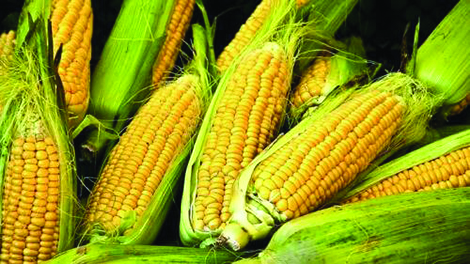EARTH TALK

Unless you only buy food that is certified organic or marked as “GMO-free,” odds are that a great deal of the food you eat contains genetically modified organisms (GMOs). But are you risking your health and damaging the environment by eating them? Not according to Monsanto, the agricultural biotechnology company that is a leading producer of genetically modified seed.
Monsanto contends that GMOs are safe to eat and that seeds with genetically modified traits have been tested more than any other crops in the history of agriculture—with no credible evidence of harm to humans or animals.
The company also points to studies that have positively assessed the safety of GMOs, including the 2010 European Commission report summarizing the results of 50 research projects addressing the safety of GMOs for the environment, as well as for animal and human health. The commission stated that “there is, as of today, no scientific evidence associating GMOs with higher risks for the environment or for food and feed safety than conventional plants.”
Since the U.S. doesn’t require food producers to label products containing genetically-modified organisms, the non-profit Non-GMO Project has taken matters into its own hands and released its own certification label for the industry.
Of course, not everyone agrees. According to the Non-GMO Project, genetically modified crops and food items can contaminate conventional crops and food through cross-pollination and/or contamination. Also, since many such crops are designed to be immune to herbicides and pesticides, farmers have increased their use of weed and bug-killing chemicals to keep competition for their cash crops at bay. The resulting overuse of these chemicals has led to a rapid evolution of “super weeds” and “super bugs” that can quickly take over unmaintained or wild lands.
Given the prevalence of GMOs in our food supply already, the non-profit Just Label It believes labeling everything that contains GMOs would be a start so at least consumers can choose on their own what they put in their bodies. Some 64 countries—including China, Japan, Australia, Brazil, Russia, and 28 nations in the European Union—require labeling on food created with GMOs. Just Label It is one of many activist voices calling on the United States to follow suit. The group has created an online petition so everyday Americans can let the U.S. Food and Drug Administration (FDA) know they have the right to know what’s in their food, especially when it comes to GMOs.
But until we have federal rules in place requiring labeling, concerned consumers will have to take matters into their own hands when it comes to ferreting out the GMO content of what they eat. Luckily, the Non-GMO Project is helping make it easier by offering verified products the opportunity to display its “Non-GMO” symbol on their labels. The group has verified 35,000 food products across 1,900 different brands commonly available on U.S. store shelves as GMO-free, representing annual sales topping $13.5 billion. Meanwhile, Whole Foods has stepped up its support of GMO labeling by instituting a new policy of “full GMO transparency” in all of its North American stores.
Beyond just labeling, though, Whole Foods is also working with many of its suppliers to transition to ingredients from non-GMO sources altogether. Activists hope this leadership will trickle down to mainstream grocers, as well.
Source: Earth Talk (earthtalk.org), a non-profit organization which produces a weekly, nationally syndicated Q and A column and other articles on environmental issues.